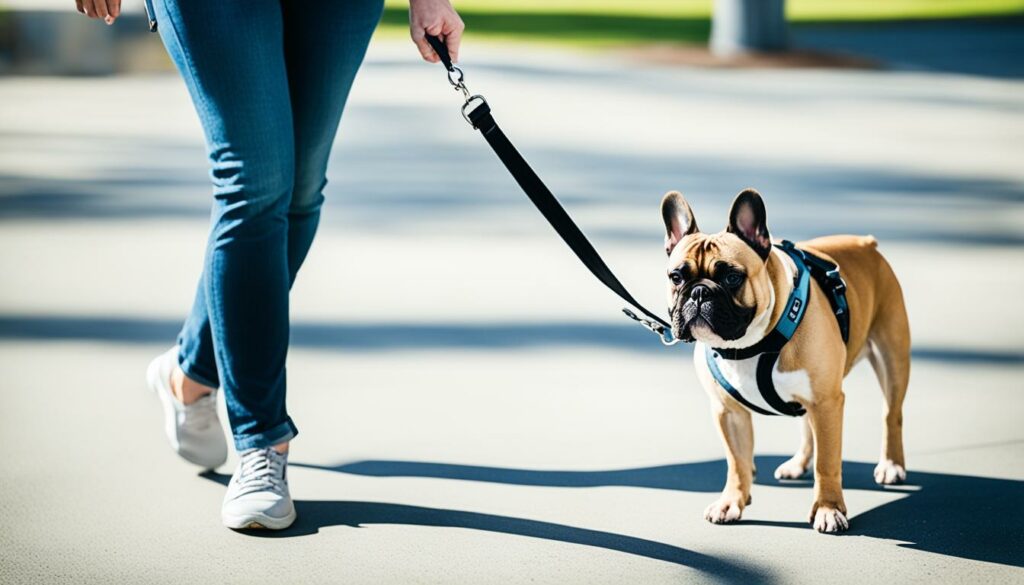Did you know that those adorable, squishy-faced French Bulldogs can be more than just lovable companions? These charismatic pups are making waves in the world of therapy dogs, bringing comfort and joy to people in need. In this comprehensive guide, we’ll explore the wonderful world of French Bulldog therapy dogs, their unique qualities, and how they’re making a difference in people’s lives.
Key Takeaways:
- French Bulldogs possess qualities that make them excellent therapy dogs
- Therapy work can provide mental stimulation and purpose for Frenchies
- Proper training and certification are crucial for therapy dog success
- French Bulldog therapy dogs can benefit various populations and settings
- Owners must consider their Frenchie’s health and temperament before pursuing therapy work
1. What Makes French Bulldogs Great Therapy Dogs?
French Bulldogs have several characteristics that make them well-suited for therapy work:
- Affectionate Nature: Frenchies are known for their loving personalities
- Compact Size: Their small stature makes them non-threatening and easy to handle
- Expressive Faces: Their unique features can elicit smiles and emotional responses
- Calm Demeanor: Many Frenchies have a relaxed temperament, ideal for therapy settings
- Social Butterflies: They often enjoy meeting new people
For more information on French Bulldog temperament and traits, check out our breed profile guide.

A French Bulldog therapy dog bringing comfort to a patient
2. The Benefits of Therapy Work for French Bulldogs
Engaging in therapy work can be rewarding for Frenchies too:
- Mental Stimulation: Provides cognitive challenges and new experiences
- Physical Exercise: Gentle activity during visits can help maintain a healthy weight
- Socialization: Exposes them to various people and environments
- Bonding: Strengthens the relationship between dog and owner
- Purpose: Gives Frenchies a “job” and sense of accomplishment
Remember, therapy work should always be enjoyable for your Frenchie, not stressful.
3. Training Your French Bulldog for Therapy Work
Proper training is essential for successful therapy dogs:
- Basic Obedience: Start with fundamental commands like sit, stay, and come
- Socialization: Expose your Frenchie to various people, sounds, and environments
- Desensitization: Accustom them to medical equipment, wheelchairs, and other common sights
- Impulse Control: Teach them to remain calm in exciting situations
- Touch Tolerance: Ensure they’re comfortable with gentle handling
For more tips on training your French Bulldog, visit our comprehensive training guide.
A French Bulldog practicing obedience skills during therapy dog training
4. Certification and Requirements for Therapy Dogs
To become official therapy dogs, French Bulldogs typically need:
- Health Clearance: A veterinary check-up to ensure they’re fit for therapy work
- Temperament Evaluation: An assessment of their behavior and reactions
- Obedience Training: Proof of basic obedience skills
- Therapy-Specific Training: Courses focused on therapy dog skills and etiquette
- Certification: Through recognized organizations like Pet Partners or Therapy Dogs International
Always check local requirements, as they may vary by region or facility.
Comparison: French Bulldog Therapy Dogs vs. Other Therapy Dog Breeds
| Aspect | French Bulldog | Larger Breed Therapy Dogs |
| Size | Small, portable | May be intimidating to some |
| Energy Level | Generally calm | Often higher energy |
| Face-to-Face Interaction | Easy due to small size | May require more effort |
| Heat Tolerance | Limited, needs monitoring | Often better in warm environments |
| Training Ease | Can be stubborn, but food-motivated | Often highly trainable |
5. Where French Bulldog Therapy Dogs Can Make a Difference
Frenchie therapy dogs can bring joy to various settings:
- Hospitals: Comforting patients during recovery
- Nursing Homes: Providing companionship to elderly residents
- Schools: Assisting with reading programs or stress relief
- Mental Health Facilities: Offering emotional support
- Disaster Relief Areas: Bringing comfort to those affected by tragedies
Remember to follow proper health and safety protocols when visiting these environments.
6. Health Considerations for French Bulldog Therapy Dogs
While Frenchies can make great therapy dogs, their health needs must be considered:
- Breathing Issues: Monitor closely during activities due to their brachycephalic nature
- Temperature Sensitivity: Avoid overheating in warm environments
- Joint Health: Ensure activities are appropriate for their physical capabilities
- Skin Care: Regular grooming to maintain hygiene for therapy visits
- Vaccinations: Keep all required vaccinations up-to-date
Always consult with your veterinarian before starting therapy work with your Frenchie.
A French Bulldog getting a health check-up before starting therapy work
7. The Impact of French Bulldog Therapy Dogs
French Bulldog therapy dogs can have profound effects:
- Stress Reduction: Their presence can lower cortisol levels in patients
- Mood Improvement: Interactions can increase feel-good hormones like oxytocin
- Pain Management: Petting a dog can serve as a distraction from discomfort
- Motivation: Can encourage participation in physical therapy or other treatments
- Social Interaction: Facilitates communication and connection for isolated individuals
For more information on the positive impacts of dog ownership, check out our guide on French Bulldog benefits.
Tips for Success with Your French Bulldog Therapy Dog
- Start Young: Begin socialization and basic training early
- Be Patient: Some Frenchies may take longer to train due to their stubborn streak
- Keep Sessions Short: Respect your Frenchie’s endurance limits
- Use Positive Reinforcement: Reward good behavior with treats and praise
- Practice Self-Care: Therapy work can be emotionally taxing for handlers too
- Monitor Your Dog’s Stress Levels: Learn to recognize signs of fatigue or anxiety
- Maintain Regular Vet Check-ups: Ensure your Frenchie stays healthy for therapy work
In conclusion, French Bulldogs can make wonderful therapy dogs, bringing joy and comfort to those in need. Their unique qualities, combined with proper training and care, allow them to make a significant impact in various therapeutic settings. Whether visiting hospitals, schools, or nursing homes, these lovable Frenchies are proving that sometimes the best medicine comes in a small, wrinkly package with bat-like ears and a heart of gold.
[Call to Action: Has your French Bulldog shown potential as a therapy dog? Share your experiences or questions about Frenchie therapy work in the comments below! And don’t forget to subscribe to our newsletter for more inspiring stories and tips on French Bulldog care and training.]
Resources
- Pet Partners – Therapy Animal Program
- Therapy Dogs International – About TDI
- American Kennel Club – Therapy Dog Program
- The French Bulldog Club of America – Therapy Work
- Alliance of Therapy Dogs – Become a Member
Hi, I’m Alex! At FrenchyFab.com, I share my expertise and love for French Bulldogs. Dive in for top-notch grooming, nutrition, and health care tips to keep your Frenchie thriving.



